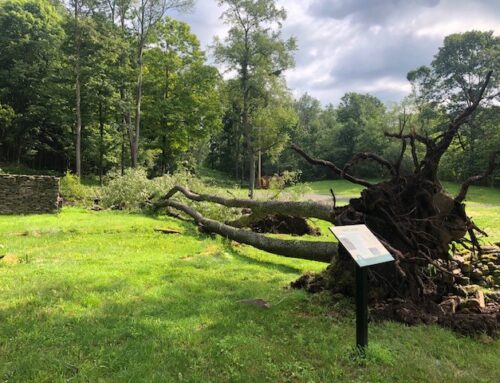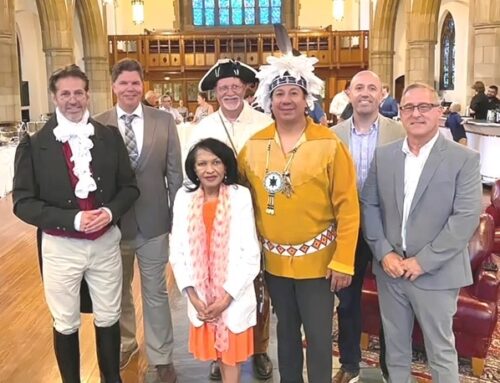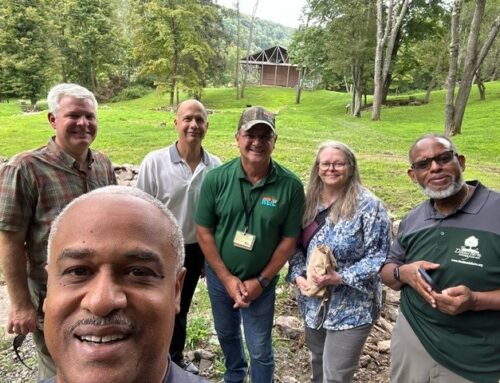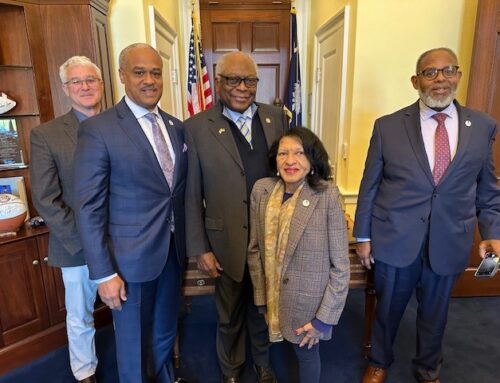
Chelsea Frank, Director of Library Services, Gertrude Kistler Library, Rosemont College, speaking at 7th Annual DFCLT-MoAR Lonaé A. Moore Forum, “It Begins with Us: Fostering Racial Understanding.”
Through our annual Lonaé A. Moore Forum, “It Begins with Each of Us: Fostering Racial Understanding, the Dennis Farm Charitable Land Trust in partnership with the Museum of the American Revolution (MoAR), brings people together across racial, ethnic, religious and cultural lines in order to help create a more empathetic and equitable society. The theme of the 7th Annual Forum, February 10, 2024, “Building Bridges by Sharing Our Stories,” addressed the current assault on knowledge in the United States. Today, books and learning are under siege. Unfortunately, there are some misguided Americans who believe subjects like Black History should be eradicated from school curricula, and that books about Black History, as well as, select books in classic and contemporary literature should be neither taught nor available in libraries and bookstores. This is robbing Americans of their freedom to choose, learn, grow and understand.
Moderated by MoAR’s Director of Education and Community Engagement, Adrienne Whaley, Forum panelists, Chelsea Frank, Executive Director of Library Services at Rosemont College’s Gertrude Kistler Library and DFCLT CEO, Denise Dennis, discussed books that are being banned and the effects the attack on books are having on libraries and librarians across the United States. In her presentation, “A Dream Deferred,” Chelsea Frank described the library profession and its goals: access, equity, intellectual freedom and privacy, the public good, and sustainability. She also reviewed the growing list of books that are being banned and the dilemma the American Library Association (ALA) and librarians face in trying to navigate these treacherous, new waters, while still helping to educate students.
In her presentation, “The Persistence of Truth” Denise Dennis described how, according to a study by Columbia University Teachers’ College, school districts in twenty American states have measures to remove Black History from their curricula even though eighty-five percent of Americans including Democrats, Republicans, Independents and people from various ethnic backgrounds, believe Black History should be taught in schools K-12. She ended her presentation by discussing two literary classics that have been banned in some school districts and libraries: The Diary of Anne Frank, the diary of a young Jewish girl forced into hiding in Nazi-occupied Amsterdam who later died in a concentration camp; and Nobel Prize winner Toni Morrison’s novel, The Bluest Eye, about a poor, young African American girl who feels so marginalized and brutalized, she believes that if she has blue eyes, she will be loveable. These books illuminate the devastating effects of hatred and should be available to readers. Anne Frank and the fictional little girl in The Bluest Eye have hope, in spite of the brutality and bias they face.
At the conclusion of her remarks, Denise said, “When we share our stories, the truth–like the power of music–breaks down barriers by opening our hearts. We feel for one another, one human to another. So, we must fight to makes sure we have access to the stories and histories that tell the truth and bring us together. If not, we will be torn apart and democracy will die.” The panelists’ presentations were followed by a robust Q&A, moderated by Adrienne Whaley.





